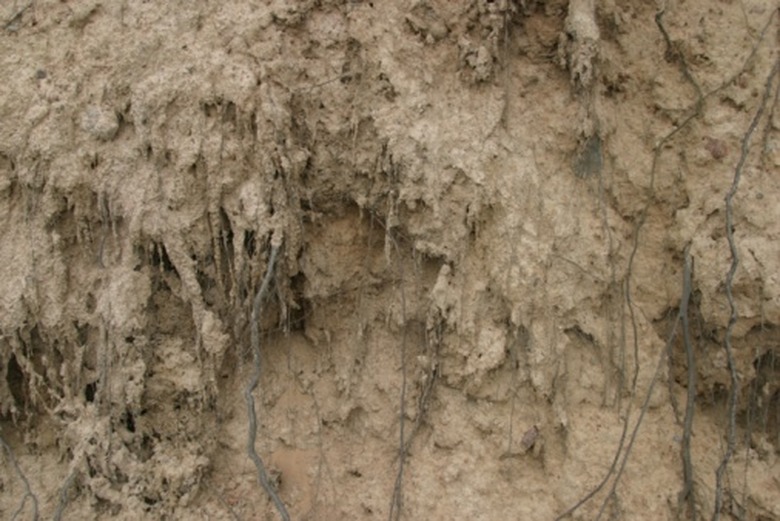Buffering Capacity Of Soils
In chemistry, buffer capacity is the amount of acid or base a buffered solution can soak up before its pH will start to change significantly. The buffer capacity of a soil is important in determining how its pH will change.
Features
Various minerals in soil help to buffer against changes in pH when an acid or base is added. At high pH, calcium, magnesium and potassium oxides, together with carbonates, help to buffer pH changes; at acidic pH, aluminum oxides and iron hydroxides act as buffering agents; at intermediate pH levels, soil organic matter, mineral weathering and exchange reactions help to buffer the soil.
Function
A higher buffer capacity means that the soil can absorb more acid and/or base without a significant change in pH. In general, clay soils have higher buffer capacity than sandy soils, and a higher organic matter content tends to increase buffering capacity.
Significance
Buffering capacity is important because it helps to stabilize the pH. Changes in pH can affect plants in a variety of ways, especially by diminishing the fraction of nutrients in soil that are available to the plants and increasing uptake of undesirable minerals like aluminum.
